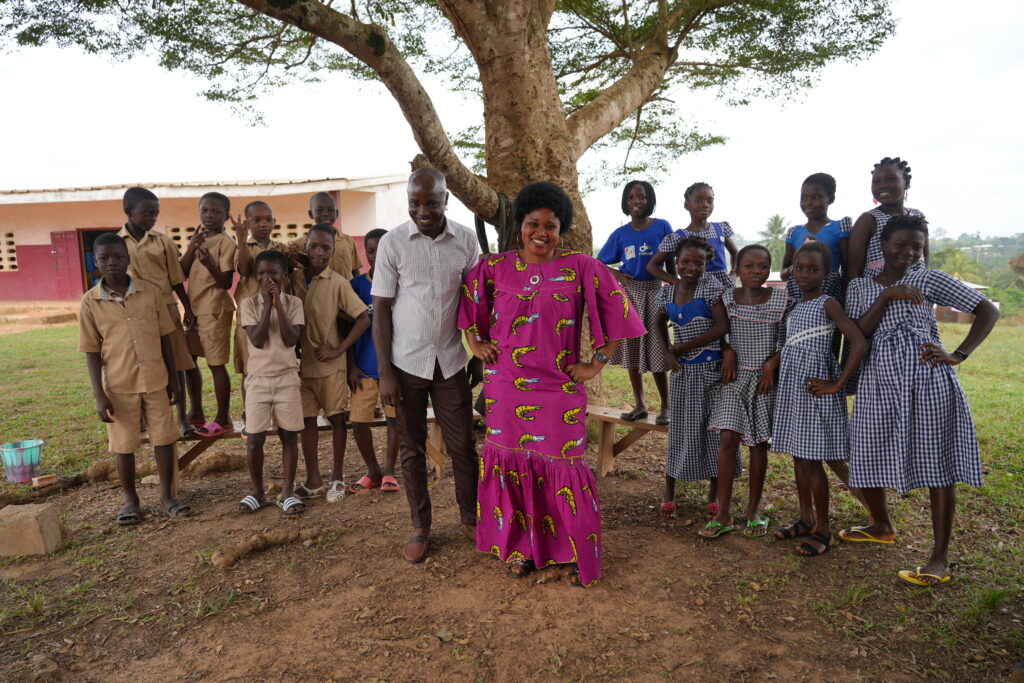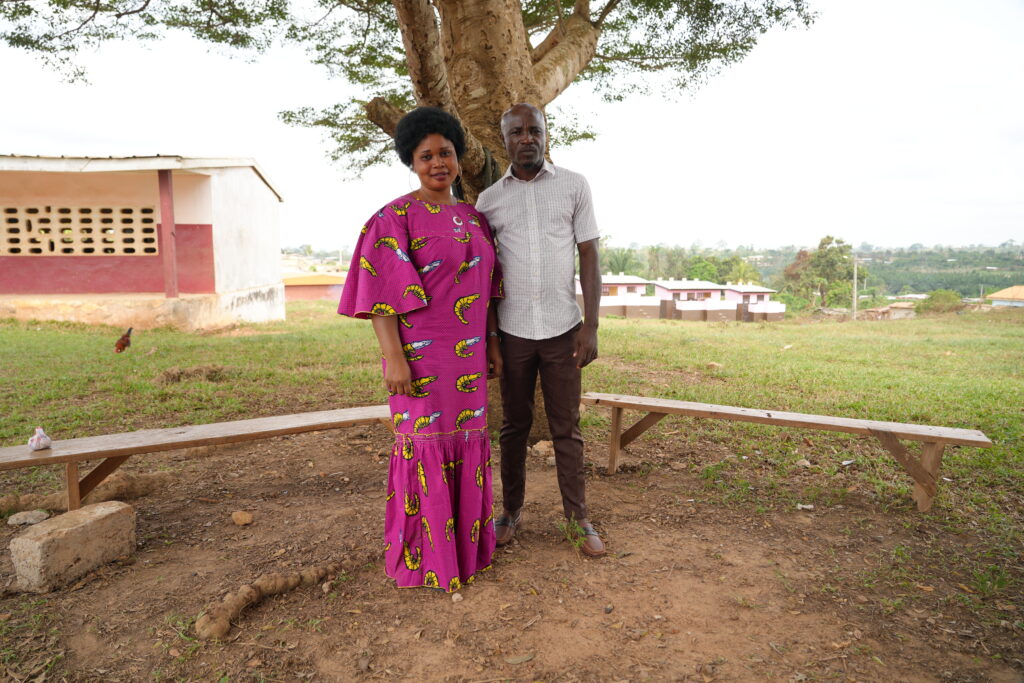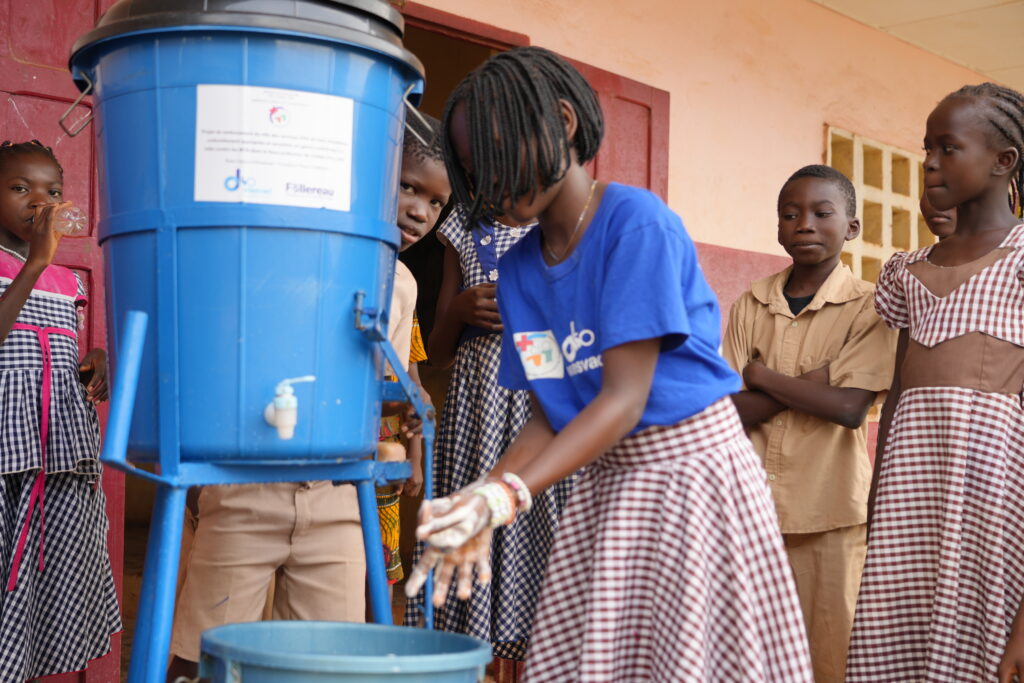Bamba Manyan, Teacher and Chair of the school health club in Chièpo, Côte d’Ivoire
"They are like the school’s health delegates, or something like that. They are the students who take the most responsibility when it comes to matters of health"


Every Wednesday afternoon, the eighteen members of the school health club in Chièpo, Côte d’Ivoire, meet up in a classroom. To make it as equitable as possible, the group contains eight male and eight female students: “They are like the school’s health delegates, or something like that. They are the students who take the most responsibility when it comes to matters of health”, explains Bamba Manyan, a teacher at the school. Manyan, better known as “Mrs. Bamba” among her students, has volunteered to act as chair of the health club this year, a task she shares with another teacher who acts as mentor.
She gives us an insight into the workings and tasks of this special group:
“They’re responsible for looking after the toilets. And picking up rubbish from the school playground. Afterwards, they wash their hands very well and set an example for their classmates. It’s something that they’re very proud of. When you ask them to help cleaning the school, they’re very happy and even motivate the others. They’ve understood that you can’t work in areas which are dirty and that this is important for health. We talk to them about cleanliness and how dirty toilets cause illnesses and so they encourage their friends to clean themselves properly”.


The school health club in Chièpo, Côte d’Ivoire
In addition to training the teaching staff and students, the intervention of the Anesvad and Raoul Follereau foundations has also led to the installation of latrines and washbasins to improve hygiene among all members of this Chièpo school family: “Here they call them trucs“ corrects Mrs. Bamba. “They’ve made a big difference because now the students go to these toilets to relieve themselves”.
The students’ involvement in the upkeep of the school has led to improvements in their health. Actively participating in these activities has given them a sense of responsibility as regards the cleanliness of the school, something which they now apply to their personal hygiene. These changes in their hygiene habits have led to a reduction in the number of cases of illnesses such as diarrhoea, wounds and tummy aches. The students now wash their hands before and after school, before and after going to the toilet and before and after eating. In addition, they have taken what they have learned in school and shared these new behaviours at home.

